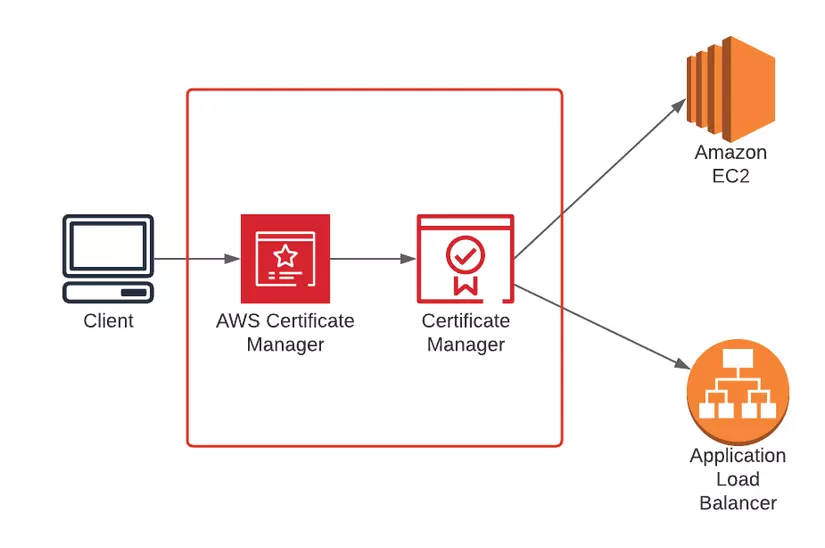A Guide To Online Undergraduate Business Degrees
This guide will cover how you learn online, what you will study and how you are assessed. We will also look at career outcomes and further study options to help you understand if studying business management at undergraduate level online is right for you.
Toc
- 1. A Guide To Online Undergraduate Business Degrees
- 2. Studying a Business Management Degree Online
- 3. What Do You Learn on a Business Management Degree?
- 4. What Areas Are Covered on a Business Management Degree?
- 5. Online Study Assessments Types
- 6. Projects And Dissertations
- 7. Benefits of Studying Business and Management
- 8. Related articles 01:
- 9. Related articles 02:
Studying a Business Management Degree Online

Studying online for a business degree is a rewarding learning experience.
With online study, a typical module consists of a mixture of live tutorials, on-demand lectures, guided project work, and group exercises. It is common for universities to run the live sessions at different points in the day so that students have the flexibility to fit them in around their existing commitments as well as for international students based in different time zones.
Time management is crucial when taking an online degree, and you should plan for around 10 to 15 hours of study time commitment each week.
The number of hours required varies between courses and universities. We strongly recommend you ask about the time commitments when enquiring about courses.
With an online degree, you usually access all the course materials and submit your assignments through the university’s learning management system (LMS). at a minimum, you only need a laptop and internet connection to complete the course.
What Do You Learn on a Business Management Degree?
Effective Business managers need to be able to adapt to changing market conditions, navigate uncertainties, and make decisions that promote the organisation’s growth and sustainability.
Business management covers every aspect of planning, organising, directing, and controlling a company or organisation’s activities and resources to achieve its goals. It is about understanding all areas of an organisation, including human resources, finance, operations, marketing, and strategy, to ensure that the business runs smoothly while progressing towards the its objectives
Business management degrees are designed to provide graduates with strong communication skills and a solid understanding of different business functions.
What Areas Are Covered on a Business Management Degree?

Most business management degrees comprise a number of compulsory modules followed by specialisations or cross-discipline units as the course progresses.
These are the standard core subjects usually covered in the compulsory modules on a business management degree.
- Business Strategy and Planning
- Marketing
- Accounting and Finance
- Human Resource Management
- Information Technology
- Operations Management
- Organisational Psychology
- Introduction to Economics
Online Study Assessments Types

Taking an online business degree, you can expect to be assessed in a variety of ways, ranging from your contribution to online discussion and forums, group work with your fellow students, individual projects, and academic essays. Each module builds up to a larger, more in-depth piece of work that demonstrates the learning covered. These can range from essay-style written work investigating a specific business problem to analysing a data set or creating a business plan.
The exact modules offered and assessment types covered on a business management degree vary between universities. We strongly advise reviewing and comparing the course content and modules when reviewing different online courses.
Projects And Dissertations

The final assessment on a business management degree is a major project. This work can take the form of a report or academic essay. This is a large assignment, and students should expect to spend around 300 hours researching and working on it.
For online students, it is common to use a real problem affecting the company or industry they work in for their final project. As such, the final assessment can be used as a practical piece of work that can provide value to their employer and lead to career progression working on more rewarding and challenging strategic management projects.
Benefits of Studying Business and Management

Business Management Graduates Can Develop Careers in Any Sector
The skills learnt and theory covered on business management degrees are transferable and in demand, unlike some degrees that funnel graduates into specific roles, a higher-level business qualification can open up a wide range of career pathways and opportunities.
1. https://cacaocafenewjersey.com/the-sweet-truth-is-cacao-really-good-for-your-health
2. https://cacaocafenewjersey.com/cach-lam-sangria-cocktail-ruou-do-mat-lanh-sang-khoai
3. https://cacaocafenewjersey.com/cac-thuong-hieu-cacao-noi-tieng-the-gioi-va-viet-nam
4. https://cacaocafenewjersey.com/nhung-dieu-thu-vi-ve-cafe-bombon-latte-tay-ban-nha
5. https://cacaocafenewjersey.com/7-loi-thuong-gap-trong-qua-trinh-thuc-hien-latte-art
High Earning Potential
Business management graduates earn more than the average graduate salary. Online students usually work while studying and can leverage the qualification for internal promotion at their existing company or seek new higher-paid roles on the open job market.
Transferable Skills
Due to the broad nature of the subject, gaining a business and management degree provides many transferable skills that are beneficial across all roles and sectors. Graduating with a business management degree demonstrates the following transferable skills.
- Communication and Presenting
- Team working and Collaboration
- Data Analysis and Critical Thinking
- Problem-solving
- Leadership
Careers with a Business Management Degree?

Because the subject applies to all organisations and businesses, there are no set career pathways. Instead, business management graduates are always in demand across all sectors. Below are a few example roles to give you an idea of the broad range of possible job titles graduates can pursue.
- Project Manager
- Business Analyst
- Production Manager
- Marketing Manager
- Banker
- Risk Manager
- Entrepreneur
- Accountant
- Retail Manager
- HR Manager
The Future of Business Education: A Blend of Online and Traditional Learning

The world is changing at an unprecedented pace, and so is the realm of business education. With the rapid rise of technology, evolving market demands, and a greater emphasis on sustainable and ethical practices, the future of business education is bound to look different from what we know today. As we move further into the digital age, institutions and educators must rethink traditional approaches to ensure that business education remains relevant, practical, and transformative.
In this blog, we’ll explore the key trends shaping the future of business education and how they will impact students, educators, and the broader business ecosystem.
1. Rise of Digital Learning Platforms
One of the most notable shifts in business education is the increasing reliance on digital platforms. Traditional classroom settings are no longer the only option for students to gain knowledge. Online courses, webinars, virtual classrooms, and other digital tools have made business education more accessible to people worldwide.
a. E-Learning and MOOCs (Massive Open Online Courses)
Platforms like Coursera, edX, and Udemy have revolutionized the way people learn. These platforms offer courses from top universities and industry professionals, allowing students to access high-quality education from the comfort of their homes. Many business schools have adopted online programs or blended learning models, combining the flexibility of online learning with the rigor of traditional education.
b. Personalized Learning Paths
Digital platforms enable personalized learning experiences. Instead of a one-size-fits-all approach, learners can choose courses tailored to their interests, skills, and career goals. Business education programs will likely continue to adopt this model, allowing students to focus on the areas that matter most to them.
2. Focus on Lifelong Learning
In the past, business education was seen as something that took place primarily at the undergraduate or MBA level. However, the concept of lifelong learning is gaining traction. The rapid evolution of industries and the need for professionals to stay updated with the latest trends and technologies has shifted the focus toward continuous education.
a. Micro-Credentials and Certifications
Instead of committing to full-time degrees, professionals are increasingly opting for micro-credentials and certifications to upskill or reskill. These short, focused programs allow individuals to quickly learn new skills, whether it’s mastering data analytics, improving leadership abilities, or understanding new financial technologies (FinTech).
b. Executive Education
Business schools are expanding their executive education offerings, designed for working professionals seeking to stay competitive in their fields. Short-term programs and workshops focusing on leadership, innovation, and strategic management are becoming more popular, providing executives with the tools they need to navigate the changing business landscape.
3. Integration of Technology and AI in Business Curriculum

As the business world becomes more tech-driven, so too must business education. Emerging technologies like artificial intelligence (AI), machine learning, blockchain, and big data are transforming industries. Business education programs must evolve to prepare students for this new digital economy.
a. Data-Driven Decision Making
Companies today rely heavily on data to drive decisions. Business students will need a deep understanding of data analytics, interpretation, and application in real-world business scenarios. As a result, courses on data science, statistics, and data-driven decision-making will become integral to business curricula.
b. AI and Automation
AI is not only changing the way businesses operate but also how business professionals are educated. AI-powered learning tools, such as chatbots and personalized learning assistants, can tailor educational experiences to individual students’ needs. Business schools will need to prepare students to harness the power of AI, both in terms of operational efficiencies and strategic innovations.
4. Soft Skills Take Center Stage
While technical skills are critical, the importance of soft skills cannot be overstated. The future of business education will place a greater emphasis on interpersonal and leadership skills. These skills include emotional intelligence, adaptability, communication, and problem-solving—qualities that are crucial for navigating the complexities of modern business environments.
1. https://cacaocafenewjersey.com/7-loai-huong-vi-latte-pho-bien-tren-the-gioi
2. https://cacaocafenewjersey.com/xu-huong-do-uong-gioi-tre-hien-nay
3. https://cacaocafenewjersey.com/7-cong-thuc-pha-che-matcha-hot-trend-ma-cac-chu-quan-khong-nen-bo-qua
4. https://cacaocafenewjersey.com/cach-sang-tao-thuc-uong-dac-trung-cua-rieng-ban
a. Leadership and Emotional Intelligence
In an increasingly interconnected and globalized world, business leaders need to be more empathetic and emotionally intelligent. Business programs will place a greater emphasis on leadership training that focuses on understanding human behavior, managing diverse teams, and fostering inclusive work environments.
b. Collaboration and Teamwork
The ability to work in teams, especially in cross-functional and cross-cultural settings, will be vital in the future. Business schools are introducing more project-based and experiential learning opportunities, where students collaborate in teams to solve real-world business problems. These experiences help students develop their teamwork and collaboration skills, which are essential in today’s workplace.
5. Globalization and Cross-Cultural Competence

The world is more interconnected than ever, and businesses are increasingly operating on a global scale. Business education must equip students with the knowledge and skills needed to navigate the complexities of global markets, diverse cultures, and international regulations.
a. Global Business Strategy
Understanding international markets, trade regulations, and cross-border operations will be crucial for future business leaders. Courses on global business strategy, international finance, and cross-cultural management will become even more essential components of business curricula.
b. Cultural Sensitivity and Diversity
Business leaders need to be culturally sensitive and aware of the different perspectives that come with working in a global market. Business education will continue to prioritize teaching students about the importance of diversity and inclusion, both within organizations and when dealing with clients, customers, and stakeholders from different parts of the world.
6. Sustainability and Ethical Business Practices
The future of business education will also be shaped by a growing focus on sustainability and ethical practices. Consumers and investors are placing more emphasis on corporate social responsibility (CSR), and businesses are being held accountable for their impact on the environment and society.
a. Sustainable Business Models
Business programs are increasingly offering courses that teach students how to develop sustainable business models that balance profit with purpose. These courses cover topics such as environmental sustainability, social entrepreneurship, and impact investing, preparing students to lead organizations that prioritize long-term sustainability.
b. Ethical Decision Making
In a world where corporate scandals and unethical practices can severely damage a company’s reputation, ethical decision-making is more important than ever. Business education will emphasize the importance of ethics in leadership and decision-making, ensuring that future business leaders are equipped to make responsible and moral choices.
7. Experiential Learning and Real-World Applications
Another trend shaping the future of business education is the shift toward experiential learning. Instead of relying solely on textbooks and theoretical knowledge, business schools are focusing more on practical, hands-on experiences that allow students to apply what they learn in real-world settings.
a. Internships and Corporate Partnerships
Business schools are forming partnerships with companies to provide students with internships, co-op programs, and consulting projects. These experiences allow students to work on real business challenges, gaining valuable insights and practical skills that will benefit them in their careers.
b. Simulation and Case Studies
Simulations and case studies are becoming more common in business education, allowing students to experience complex business scenarios in a controlled environment. These methods encourage critical thinking, problem-solving, and decision-making, all of which are crucial for success in the business world.
8.Hybrid and Flexible Learning Models

With the rise of digital technologies and the growing demand for flexibility, hybrid learning models are becoming the new norm in business education. These models combine online learning with in-person instruction, allowing students to balance their studies with work or other commitments.
a. Flexibility for Working Professionals
Many business schools are offering part-time, evening, and online programs to accommodate working professionals who want to further their education without leaving their jobs. This flexibility allows more people to access business education, regardless of their location or schedule.
b. Global Access to Education
Hybrid learning models are also making business education more accessible to students from different parts of the world. By offering online programs, schools can reach a global audience, providing opportunities for students who may not have access to traditional business education.
The future of business education is evolving in response to technological advancements, changing market dynamics, and the increasing importance of sustainability and ethical practices. As business schools adapt to these trends, they will continue to play a crucial role in shaping the leaders of tomorrow. By embracing digital learning platforms, focusing on lifelong learning, integrating technology, and emphasizing soft skills, business education will remain relevant and impactful in a rapidly changing world. The key to success in the future will be adaptability, continuous learning, and a commitment to ethical and sustainable business practices.










